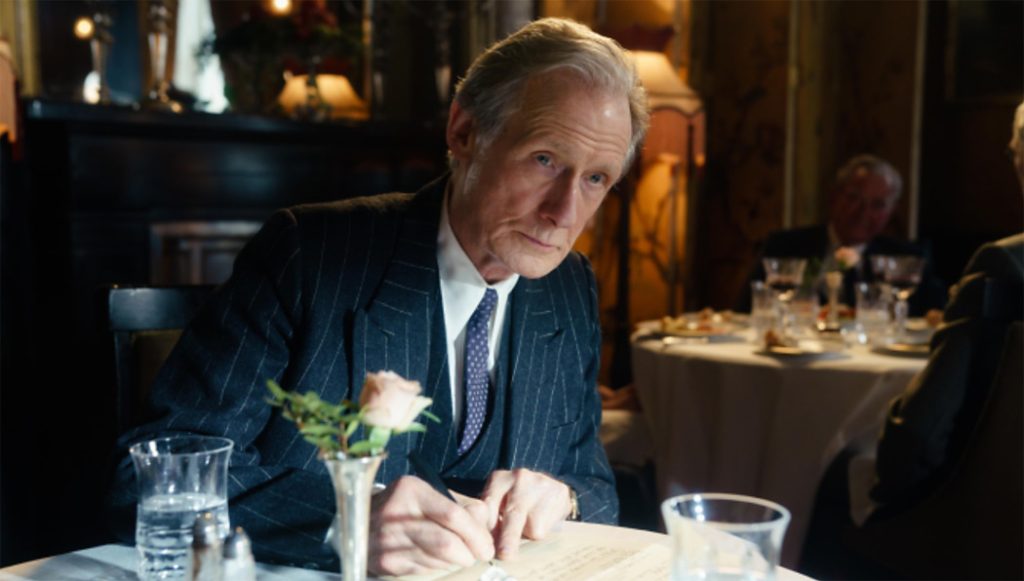
As the British remake of Ikiru (“To Live”), Akira Kurosawa’s acclaimed film of 1952, the wise tale called Living dares to approach the elusive meaning of life.
Set in London in the early 1950s, Living revisits the formal days of propriety, when people dressed up for work and spoke politely, quietly, and sometimes rigidly. The social climate seems cold and sterile at first, but the temperature grows warmer as the story proceeds. Eventually, it softens into a respectful yet genuine style of connecting that seems natural and noble, something we could all aspire to return to instead of marinating in hate. Or gunning each other down. But I digress.

Bill Nighy plays Mr. Williams, the old-school manager of the municipal Public Works department. The down-to-business Mr. Williams is so dry he almost creaks when he walks. On his morning train commute, he avoids riding in the same car as his staff, although, ironically, the office seating clusters them together just inches apart.
Bill Nighy inhabits this evolving role with just the right measure of distance and dignity. And then there’s his ailing health—not a spoiler but rather the point of the story. With six months to live, Williams ponders his choices that created the life he leads, for better and for worse. And with the clock ticking, he considers how to navigate his remaining time. This 11th-hour moment is where Nighy shines as the Williams who was, is, and might be.
Beautifully directed by Oliver Hermanus, the quiet film dramatizes a simple, emotional premise with no added sweeteners. It was written by Kazuo Ishiguro, who cowrote the original film with Kurosawa and recruited Nighy for this British remake. Thoughtful pacing allows viewers ample time and space to observe, reflect, and breathe.

A stroke of filmmaking insight uses story sequencing to flesh out this poignant tale. It sets the scene for reflective conversations between characters, revealing the many facets of Williams—before and after his medical forecast, memorializing him as the fully dimensional person we didn’t know. This scripting direction is so simple we might not even appreciate its power until after the film is over.
Even if you watch films strictly for entertainment, Living might follow you home. It leans on us to imagine how we might proceed knowing our own expiration date. And while we all have choices, there is no handbook for designing our lives or living our final days. But a little inspiration, whenever it appears and wherever it comes from, can go a long way.
